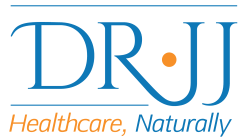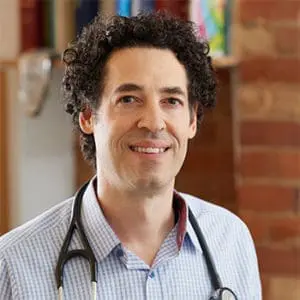Skin Complaints
Whether you’re a teenager or an adult, skin conditions can cause a great deal of stress and discomfort. But it doesn’t have to be that way. Dr. JJ offers naturopathic solutions for eczema, psoriasis, acne, hyperpigmentation and a number of other chronic skin conditions. Individual skin conditions are discussed below.
Eczema
The Eczema Society of Canada defines eczema is a chronic inflammatory skin condition, characterized by dry skin, with patches that are red and intensely itchy. These patches of eczema may ooze, become scaly, crusted, or hardened. Symptoms can range from mild to severe and the condition can negatively impact quality of life. Eczema can occur anywhere on the skin and is commonly found on the flexors (bends of the arms and backs of the knees).
There are many types of eczema, with the most common one being atopic dermatitis. Atopy refers to a hereditary tendency toward eczema, asthma, and allergic rhinitis (hay fever). People with eczema may suffer with one of the other atopic diseases.
Dr. JJ solutions: Treatment for eczema almost always includes diet changes. Many patients with eczema are triggered by the foods they eat, but are not aware of which foods are the culprits. An elimination diet or an IgG food sensitivity test may be beneficial. Dr. JJ will focus on repairing the gut, which often helps atopic diseases. In order to calm the symptoms of eczema, Dr. JJ will use supplements that have anti-inflammatory action on the skin, that repair the skin and that treat the dryness and itchiness.
Psoriasis
The Canadian Dermatology Association defines psoriasis as a common chronic inflammatory skin condition usually characterized by red elevated patches and flaking silvery scales. Symptoms can range from mild to severe.While lesions can appear anywhere on the body, the most common sites include elbows, knees, scalp, chest and lower back.Psoriasis is an autoimmune disease. Symptoms can include:
- Dry or red areas of skin, usually covered with silvery-white scales and sometimes with raised edges
- Rashes on the scalp, genitals, or in the skin folds
- Itching and skin pain, sometimes severe
- Joint pain, swelling or stiffness
- Nail abnormalities
Dr. JJ solutions: Because psoriasis is an autoimmune disease, it cannot be “cured” per se, but can be put into remission. Psoriasis treatment often includes a very strict diet to calm the disease process and reduce inflammation. Patients with psoriasis often react to gluten. An IgG food sensitivity test may be recommended, but may not necessary as most patients with psoriasis respond best with a strict hypoallergenic diet over a few months. Dr. JJ will also suggest supplements to support the liver and gut, which are often the roots of many chronic inflammatory conditions. He will also recommend some supplements to alleviate the flaking scales. In the case of psoriatic arthritis, strong anti-inflammatory supplements will have to be used.
Acne
According to the Canadian Dermatology Association, acne occurs when pores become clogged by dead skin cells resulting in accumulation of sebum, an oily substance produced by oil glands.Bacteria within pores, called Propionibacterium acnes (P. acnes), can contribute to pore blockage and inflammation – visible as redness, swelling and pus that may accompany acne spots. The result is acne, the term used to describe emerging blackheads, whiteheads, pimples and cysts. Acne usually appears on the face and neck but can also affect shoulders, back and upper arms.
Dr. JJ solutions: There is often a hormonal component to acne (generally excess dihydrotestosterone (DHT)) and this will be addressed by balancing hormones in both men and women. In addition to hormone-balancing supplements, probiotics may be used to improve the gut fauna, which often mirrors the types of microbes on the skin. In the case of cystic acne, specific herbs will be used to reduce the cystic/scarring process. Some patients have observed a worsening of their acne symptoms with certain foods; in these cases we may recommend an elimination diet or IgG food sensitivity test.
Hyperpigmentation (melasma, sun-damaged skin, drug-induced hyperpigmentation, mask of pregnancy, idiopathic hyperpigmentation)
Glutathione for Hyperpigmentation
In our society, youth is associated with health. Those who can maintain their youthful looks for longer may be seen as healthier.
Your skin may often show signs of disease, illness, stress or questionable lifestyle choices, this is understandable.
Sun damage, uneven skin tone, or hyper-pigmented skin (melasma, sun-damaged skin, acne hyperpigmentation, drug-induced hyperpigmentation, mask of pregnancy, idiopathic hyperpigmentation) may not cause any health concerns, but they may affect confidence and self esteem, making everyday life more difficult.
Thanks to modern science, we have discovered glutathione to be a safe solution to help solve these and other skin concerns.

 Your skin’s pigmentation (skin color) occurs because the body produces melanin. Melanin is produced by the melanocytes in the bottom layer of the epidermis.
Your skin’s pigmentation (skin color) occurs because the body produces melanin. Melanin is produced by the melanocytes in the bottom layer of the epidermis. The effects can last a long time, so long as you avoid unprotected sun exposure. The sun will have a counteractive effect because it increases eumelanin production and darkens skin tone. Remember: unprotected sun exposure ages your skin.
The effects can last a long time, so long as you avoid unprotected sun exposure. The sun will have a counteractive effect because it increases eumelanin production and darkens skin tone. Remember: unprotected sun exposure ages your skin.
